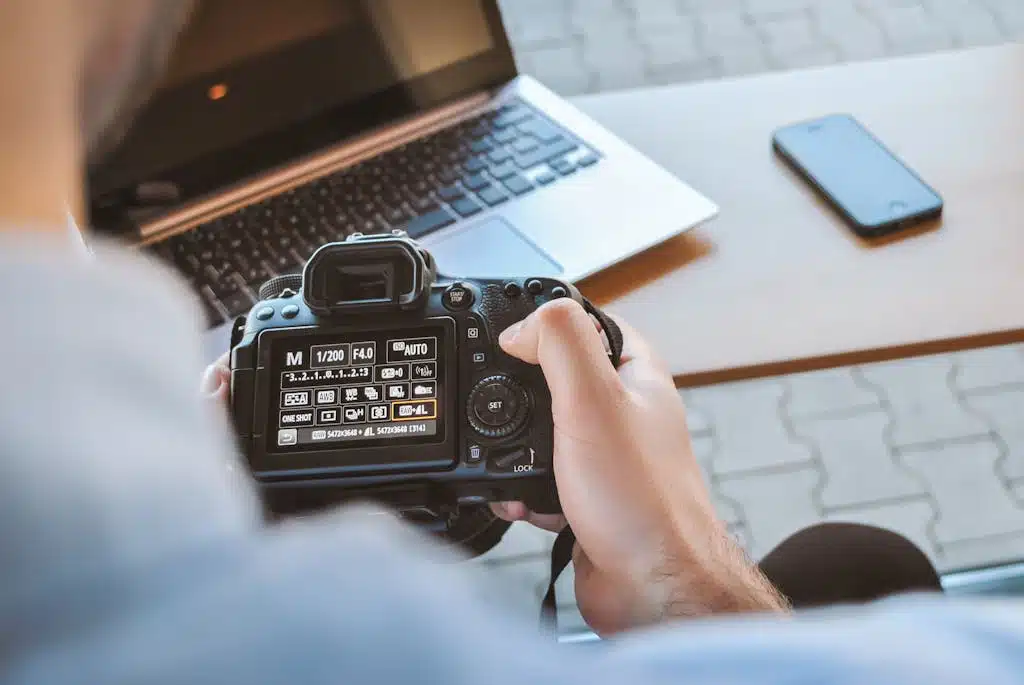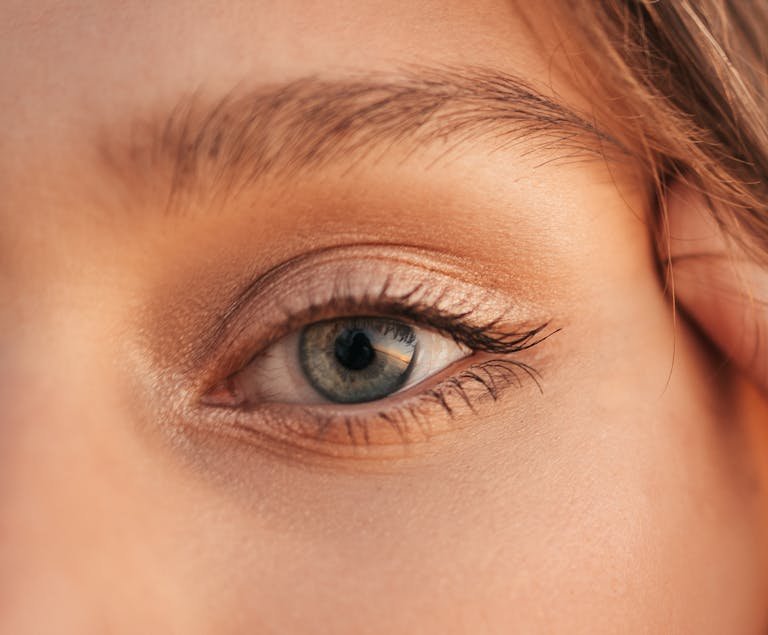Why Am I Not Photogenic? Secrets to Look Great in Pics
Have you ever wondered why some people always look stunning in photos while others struggle to capture a good shot? It’s a question that has intrigued many, especially in today’s image-centric world. We all know the societal importance placed on appearances, whether it’s on social media, dating apps, or even professional profiles. Being photogenic can seem like a magical quality that only a few possess. But what does it really mean to be photogenic, and why do some people feel they’re not?
I’ve often felt self-conscious in photos, wondering why my pictures never seemed to capture my best self. This curiosity led me to explore the nuances of photogenicity and understand the factors that contribute to it. In this blog post, we’ll explore what it means to be photogenic, identify signs that might indicate you’re not, and offer practical tips to help you become more photogenic. We’ll also discuss why some people are naturally more photogenic than others and how to embrace your unique beauty.
Let’s embark on this enlightening journey together and uncover the secrets behind photogenicity.
What Does It Mean to Be Photogenic?
Defining Photogenic
Being photogenic means having the ability to look attractive in photographs. It’s not just about having conventional good looks; it’s about certain elements coming together harmoniously to create an appealing image. These elements include lighting, angles, expressions, and, most importantly, confidence.
Elements That Contribute to Photogenicity
Lighting: Good lighting can make or break a photo. Natural light is often the best, as it softens features and reduces harsh shadows. Knowing how to position yourself about the light source can significantly impact how you look in photos.
Angles: Angles play a crucial role in how photogenic someone appears. Finding the right angle that highlights your best features can make a world of difference. Experimenting with different angles can help you discover what works best for you.
Expressions: A genuine smile or a relaxed expression can enhance your photogenicity. Forced or awkward expressions, on the other hand, can detract from your natural beauty. Practice makes perfect, so don’t hesitate to play around with various expressions.
Confidence: Confidence is perhaps the most critical factor. When you feel good about yourself, it shows in your photos. Confidence can transform an average picture into an extraordinary one.
Psychological Impact of Being Photogenic
Being considered photogenic can boost self-esteem and provide social validation. It can lead to increased confidence, not just in front of the camera but in everyday life. However, it’s important to remember that being photogenic is subjective and varies from person to person.
Signs You Might Not Be Photogenic
Common Indicators
Awkward Smiles: If your smile looks forced or unnatural in photos, it might be a sign that you’re not comfortable in front of the camera. This discomfort can manifest as awkward smiles, making you appear less photogenic.
Difficulty with Angles: Struggling to find the right angle that flatters your face is another common sign. This can lead to photos where your features don’t appear as attractive as they do in real life.
Unflattering Lighting: Poor lighting can emphasize flaws and create harsh shadows, making you look less appealing in photos. If you consistently find that lighting is an issue, it might be contributing to your non-photogenic appearance.
Facial Features and Body Language
Certain facial features and body language can also impact photogenicity. For instance, having asymmetrical features or being too stiff in photos can make you look less photogenic. Relaxing and adopting a natural posture can help mitigate these issues.
Read Also: Correct Canthal Tilt Naturally: Tips & Tricks
Common Mistakes in Photos
Overthinking Poses: Overthinking your poses can lead to stiff and unnatural photos. Instead, try to relax and be yourself.
Ignoring the Background: A cluttered or distracting background can take away from the focus on you. Always be mindful of your surroundings when taking photos.
Not Practicing: Like any other skill, becoming photogenic requires practice. The more comfortable you get in front of the camera, the better your photos will be.
Why Some People Are Not Photogenic
Scientific and Psychological Factors
Genetics: Genetics play a significant role in determining photogenicity. Certain facial structures, such as high cheekbones or a symmetrical face, are generally more photogenic.
Camera Type: The type of camera used can also impact how photogenic you appear. Professional cameras with high-quality lenses capture more details and can make you look better than a regular smartphone camera.
Personal Perception: How you perceive yourself affects how you look in photos. If you’re self-critical, you’re more likely to focus on what you consider flaws, which can affect your confidence and photogenicity.
The Role of Genetics
Genetics determine many physical attributes, including skin texture, facial symmetry, and bone structure. These factors contribute to how light interacts with your face and how your features are captured in photos. While you can’t change your genetics, understanding their role can help you work with what you have.
The Impact of Personal Perception
Your self-perception plays a crucial role in how photogenic you appear. If you believe you’re not photogenic, this mindset can translate into your photos. Building self-confidence and learning to appreciate your unique features can improve your photogenicity.

How to Become More Photogenic
Practical Tips for Improvement
Posture: Good posture can make a significant difference. Stand tall, roll your shoulders back, and elongate your neck to create a more flattering silhouette.
Facial Expressions: Practice different facial expressions in front of a mirror. Find a smile that feels natural and looks good on you. Remember, a genuine smile always looks better than a forced one.
Angles: Experiment with different angles to find out which ones work best for you. Tilting your head slightly or shooting from above can make you look more photogenic.
Finding the Right Angle
Not everyone has the same best angle. Spend some time taking selfies from various angles to discover what flatters your face most. Once you find your go-to angles, use them consistently in photos.
Boosting Confidence in Front of the Camera
Confidence is key to looking photogenic. Practice self-affirmations and focus on what you love about yourself. The more confident you feel, the better you’ll look in photos.
Embracing Non-Photogenic Moments
Celebrating Candid Photos
Not every photo needs to be posed and perfect. Some of the most cherished photos are candid moments that capture genuine emotion and personality. Learn to appreciate these candid shots for their authenticity.
Self-Acceptance and Self-Worth
Your worth is not defined by how photogenic you are. Self-acceptance is crucial in a world that often emphasizes appearances. Celebrate your unique beauty and remember that everyone has photogenic and non-photogenic moments.
The Importance of Personal Style
Your personal style plays a significant role in how you perceive yourself and how others perceive you. Find a style that makes you feel confident and comfortable, and your photogenicity will naturally improve.
Read Also: Change Eye Shape with Exercise? The Truth
Closing Words
In summary, photogenicity is a complex and multifaceted concept influenced by various factors, including lighting, angles, expressions, confidence, and genetics. While some people may naturally appear more photogenic, there are practical steps to improve your photogenicity and feel more confident in front of the camera.
Remember, beauty is subjective, and everyone has their unique features and charm. The key is to celebrate your individuality and learn to work with what you have. By applying the tips and insights shared in this post, you can enhance your photogenicity and capture beautiful, authentic photos that reflect your true self.
I invite you to share your experiences and tips in the comments below. Happy snapping!







